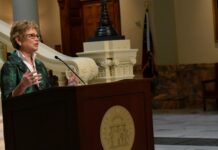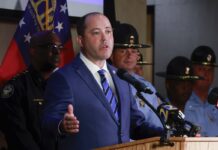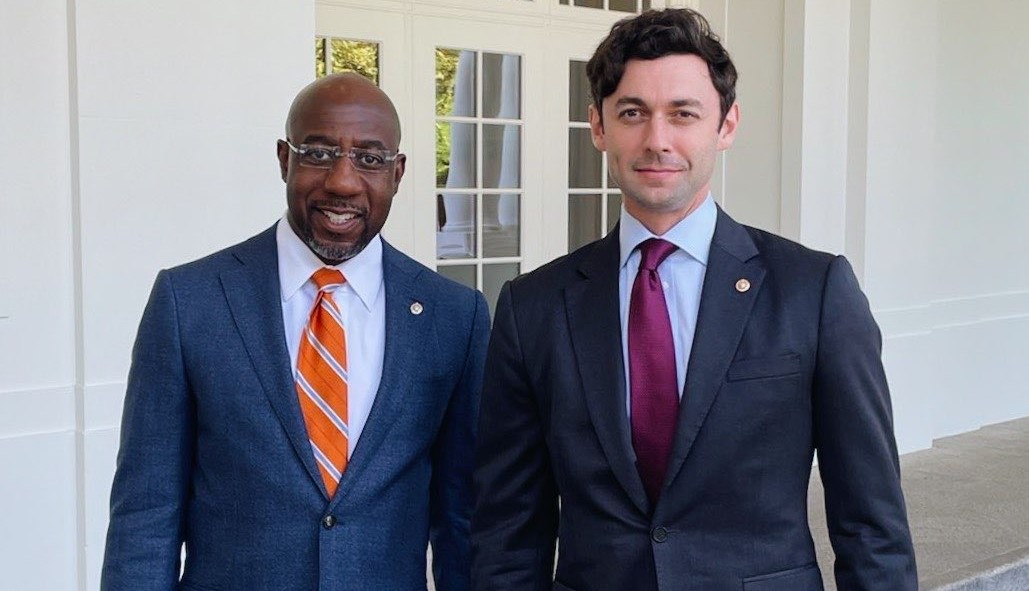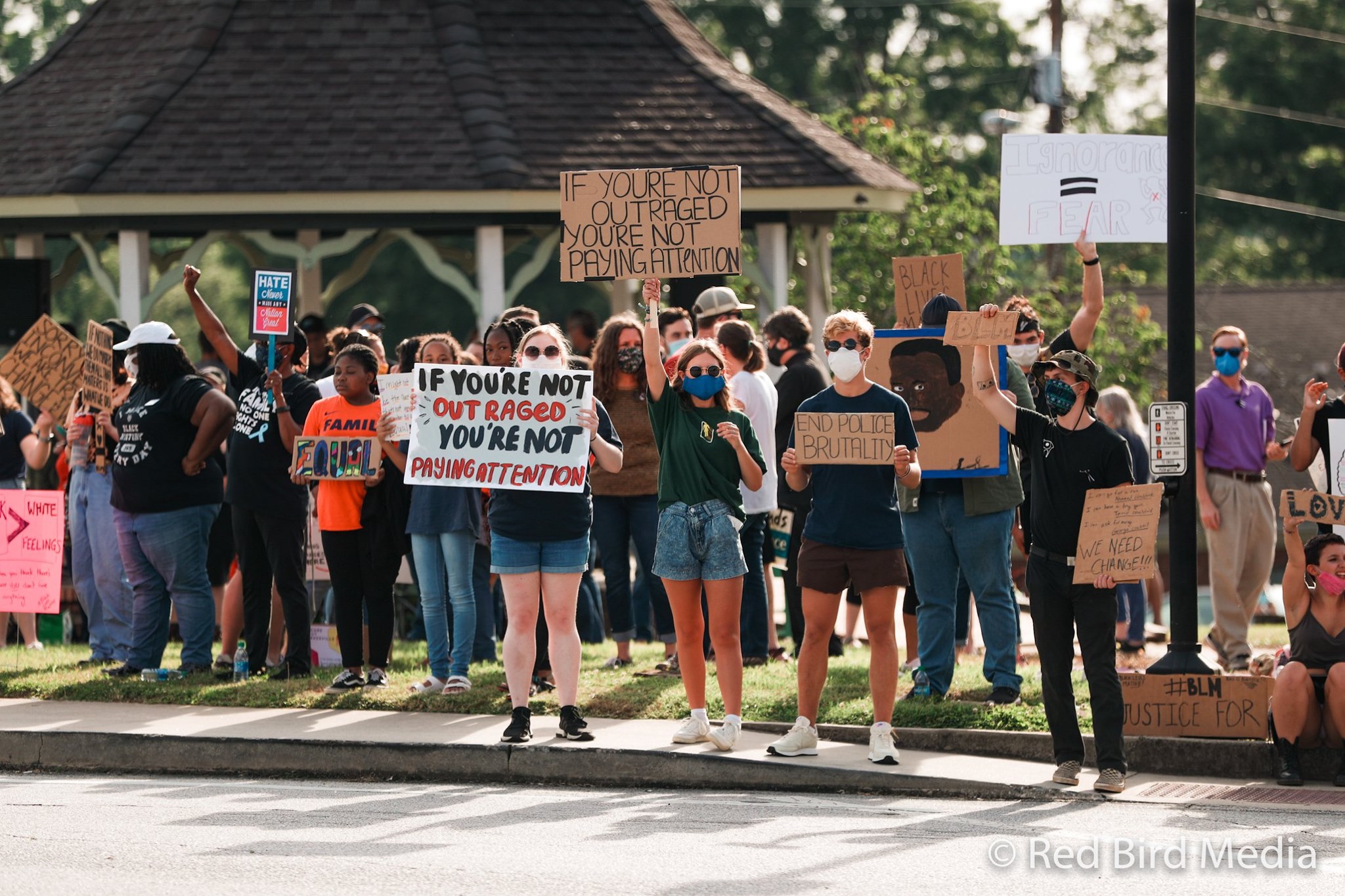
(GA Recorder) — Legislation intended to crack down on unruly protesters – and that detractors argue could chill free speech and assembly – appears to be in limbo heading into the final week of the legislative session.
During a recent scheduled hearing, the House Judiciary Non-Civil Subcommittee tabled Sen. Randy Robertson’s Safe Communities Act because he did not show up to present the bill as civil rights groups packed the small state Capitol room to speak out against it.

The legislation is attracting a wide range of critics, including First Amendment lawyers, progressive organizations like the ACLU and Americans for Prosperity, a libertarian and conservative advocacy organization.
The unexpected no-show marked a small victory, at least for the time being, for opponents of Senate Bill 171, as the clock begins to wind down on this year’s legislative session.
Robertson’s bill cleared the Senate on March 15 with a 31-21 party-line vote and needs to be passed by the House by the end of session on April 4.
“We are still just as concerned about the prospect of this legislation from the criminalization of protests to the importance of First Amendment speech, the right to assemble,” said James Woodall, the public policy associate of the Southern Center for Human Rights. “We’re going to continue our advocacy against this legislation until Sine Die (April 4) because as we’ve seen things happen down here where a bill seemingly dies and ends up coming back in another form.”
Whenever legislation fails to make it through its assigned committee, lawmakers can try to circumvent the committee by adding the language to another measure.
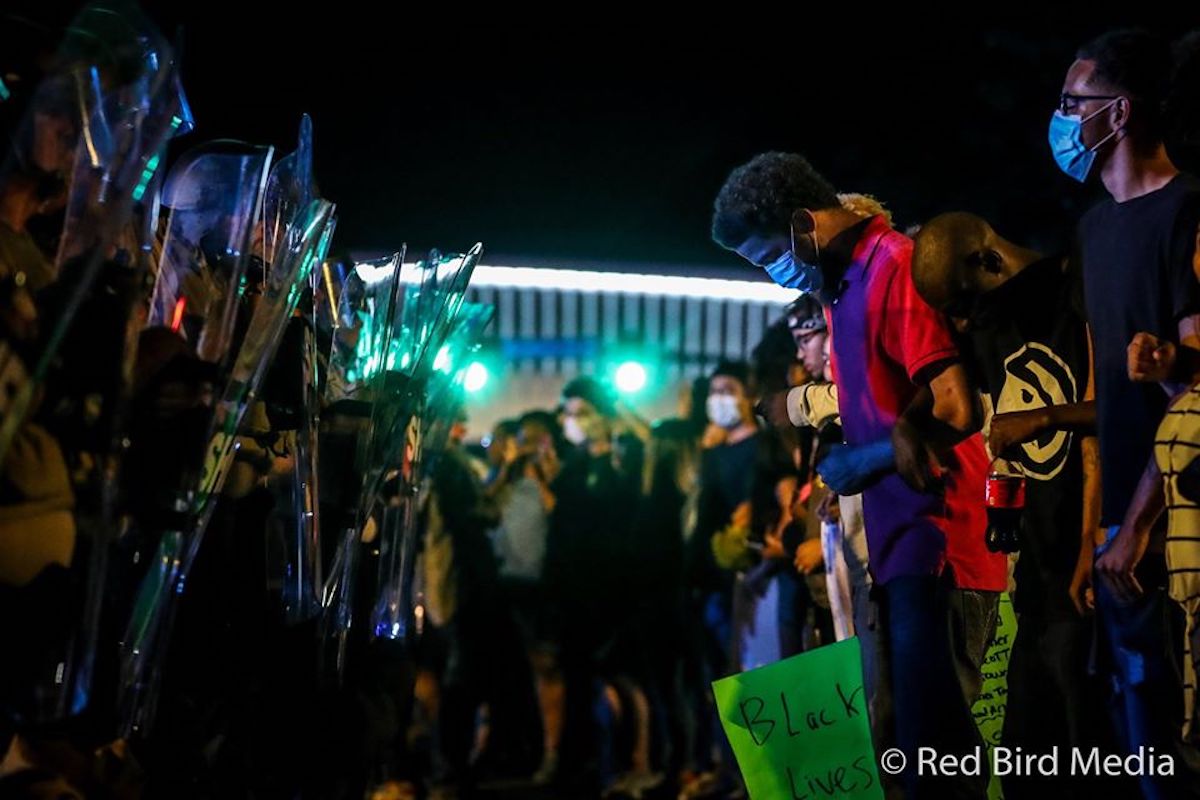
Robertson, a Catuala Republican, introduced the bill in 2021 to stiffen the punishment of unlawful protesters and hold local officials more accountable after the social justice protests in 2020, which at times devolved into nighttime looting, violence, and arson. Robertson also said the Jan. 6 Capitol insurrection is the type of protest his bill is intended to address
The measure would make felony offenses punishable up to five years in prison for a protester convicted of blocking a highway, defacing a publicly owned monument or destroying property. It would also open local governments to civil liability should local officials instruct police not to intervene in protests that result in people being injured.
Boddie said it is unlikely that the bill would have enough support to pass the House committee.

“One of the pieces of the legislation that was really problematic, I think for both conservatives and progressives, is it will make it where you have to have a permit to have a protest or rally on public property,” Boddie said. “That includes places like the state Capitol or the courthouse steps. That’s just not democratic.”
Republican Rep. Chuck Efstration, a Dacula attorney who serves as chairman of the Judiciary Committee, did not hold back his frustration after the bill sponsor was a no-show Thursday.
“I’m sensitive to the fact that legislators have a lot of legislation to carry but it’s frankly impossible to give the deliberation and consideration necessary to consider legislation if the sponsor and stand-in is not able to appear before the committee and present testimony,” he said.




